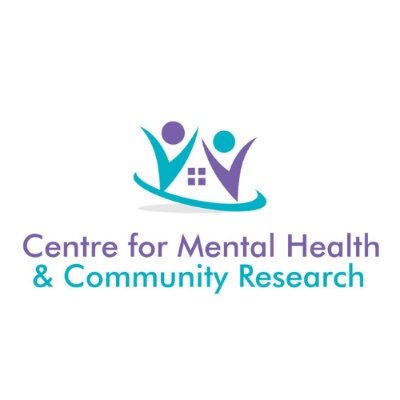
New research has recommended the development of a ‘whole of family’ approach within mental health services, including automatic consideration of children when a parent has a mental health illness.
Launching the findings of the five-year PRIMERA research programme on mental health within families, by the Maynooth University Centre for Mental Health and Community Research, the researchers said the findings of the comprehensive HSE-funded programme, illustrated barriers that need to be addressed within mental health services.
CMHCR Director and PRIMERA Principal Investigator, Professor Sinéad McGilloway, recommended that ‘think family’ policy and practice be developed and incorporated as part of routine Adult and Child and Adolescent Mental Health Services in Ireland
“We know that parental mental health can typically affect the entire family. An estimated 23% of all families have at least one parent who has or had a mental health disorder. We also know that the lifetime risk of mental illness for their children vastly increases by 41%-77%.
“When child welfare is not considered in the treatment of parents with illness, our services are failing to identify a portion of children and adolescents who are at significant risk of becoming the next generation of mental health service users.
“These families often remain ‘invisible’ and are not identified due to little or no collaboration between Adult Mental Health Services (AMHS) and Child and Adolescent Mental Health Services (CAMHS); an individualised, crisis-oriented approach to assessment and treatment; confidentiality concerns amongst mental health professionals; and parental stigma/fear of social services and losing custody of their children.

Commending the depth of the work carried out and commenting on the findings, the Minister with responsibility for Mental Health and Older People, Mary Butler, said: “I welcome the launch of PRIMERA’s research and its contribution to our understanding of the needs of families of people accessing mental health services. Outcomes for people with mental health difficulties tend to be better where family and carers are involved and where these families and carers themselves are supported.
“I am very supportive of the involvement of family members in an individual’s care with their consent, and this approach is supported by Sharing the Vision, our national mental health policy. Research such as this is a vital resource as we continuously seek to improve our mental health services.”
International studies estimate that 25%–68% of adult mental health service users are parents, and 35%–60% of children presenting at Child and Adolescent Mental Health Services have a parent with a mental illness.
Ireland is rated to have the third highest incidence of adult mental illness across 36 countries in Europe — costing the Irish state €11 billion per year. It is estimated that 280,000 children are dependent on parents who have a mental health illness.
Professor McGilloway added that there has been a growing recognition in most European countries of the need to support families in order to protect children, but Ireland lags well behind in terms of ‘think family’ policy and practice. “Where a parent has a known mental health disorder, the needs of their children or partners should automatically be considered and provided for, if so required”, Professor McGilloway said.
The report recommended a number of approaches be taken including:
- Auditing of the parenting status of adult mental health users
- Balancing the priority given to patient confidentiality with unmet family needs
- Increased collaboration between traditionally segregated adult and children’s services
- Equipping clinicians with time and resources to undertake family-focused practice.
These recommendations were identified by the PRIMERA research team as a result of their collaborative work with clinicians and HSE management to identify, implement and evaluate a family mental health intervention called Family Talk across a wide range of adult, child and primary care mental health sites.
Family Talk is the first family-focused mental health programme of its kind to be delivered in Ireland and involves a comprehensive whole-family approach designed to improve family communication/ relationships and resilience when there is parental mental illness.
PRIMERA Research Programme Manager, Dr Máiréad Furlong, said despite the challenges (including COVID-19 restrictions), the findings showed that Family Talk was significantly beneficial for two thirds of families in the research, across different mental health settings and diagnoses.
Family Talk was evaluated using a randomised controlled trial involving 86 families (139 parents and 221 children) comparing outcomes with those who received ‘usual’ services. The results showed that the families who received the intervention had:
- Fewer child behavioural and emotional problems at six-month follow up (less child depression, less conduct and hyperactivity problems, more prosocial behaviour).
- Enhanced family relationships (warmer, less disruptive and more adaptive)
- Enhanced mental health literacy (parents better understood the impact of mental illness on children, and children better understood their parent’s mental illness symptoms)
- Improvements in parents’ mental health symptoms, increased parental resilience and coping capacities.
In-depth interviews were also conducted with a sample of 45 parents, partners and children, who revealed additional benefits of:
- Reduced stigma
- Giving children and partners a voice (a space to disclose hidden concerns and burdens)
- Increased confidence and wellbeing in the service-user parent.
Importantly, the research also investigated the experiences of clinicians and managers in delivering Family Talk, carrying out in-depth interviews and focus groups with a sample of 41 clinicians and managers. Dr Furlong added: “Service providers also identified benefits for families across different diagnoses and mental health settings which included: reduced worry and stigma, a greater understanding of the impact of parental mental illness on family members, and improved family communication.”
The study therefore confirmed the effectiveness of using and further developing family-focused approaches within mental health services in Ireland.
Further Information
Ronan Cavanagh, Cavanagh Communications: (086) 317 9731.
The research and videos can be viewed at: https://cmhcr.eu/primera-programme/
Family paper: https://www.frontiersin.org/articles/10.3389/fpsyt.2021.783189/full
Practitioner paper: https://www.frontiersin.org/articles/10.3389/fpsyt.2021.783161/full
